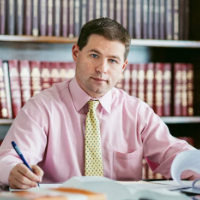Bloomfield RICO Act Lawyer, New Jersey
Sponsored Law Firm
-
 x
x

Click For More Info:
-
Law Office of Mark S. Guralnick
55 Madison Avenue 4th Floor Morristown, NJ 07960» view mapCriminal Defense Law Dedicated. Fearless. Successful.
Mark S. Guralnick and his legal team have helped clients throughout the USA and across the world by applying unparalleled dedication and hard work to each case.
800-399-8371
Not enough matches for Bloomfield RICO Act lawyer.
Below are all Bloomfield Criminal lawyers.
Lindsay A. Bernstein
✓ VERIFIEDI am an experienced attorney in New Jersey with substantial experience in municipal court handling traffic matters and criminal cases. I work hand in ... (more)
Joseph John Donatiello
✓ VERIFIEDJoseph Donatiello was born and raised in Northern New Jersey and received his J.D. in 2009 from Rutgers School of Law in Newark. Following law school,... (more)
Christopher Raymond Fritz
✓ VERIFIEDIntroducing Christopher Fritz: A Resolute Advocate for Divorce and Family Law in New Jersey. In the realm of divorce and family law, one name stand... (more)
Carl G. Zoecklein
✓ VERIFIEDCarl G. Zoecklein, graduated from Seton Hall Law School in 1989, passed the New Jersey Bar in 1990 and became a licensed Attorney in the State of New ... (more)
John W. King
✓ VERIFIEDFull service law firm that specializes in Personal Injury, Auto Accidents, Slip and Fall/Premises liability, Dog Bites, Truck and Motorcycle Accidents... (more)
Jose Raul Torres
✓ VERIFIEDJosé R. Torres is experienced in real estate, bankruptcy and criminal defense. He also counsels clients in customs
Timothy Edmund Burke
FREE CONSULTATION
CONTACTFREE CONSULTATION
CONTACT Mark Guralnick Morristown, NJ
Mark Guralnick Morristown, NJ AboutLaw Office of Mark S. Guralnick
AboutLaw Office of Mark S. Guralnick Practice AreasExpertise
Practice AreasExpertise






